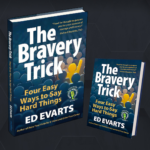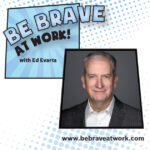
by Ed Evarts | Apr 24, 2017 | Interacting, Visibility and Value
Many of my clients collect feedback from others that they talk too quickly when they are involved in a conversation. Even before their colleague is finished making a statement, my client is already answering the question or discussing next steps. My clients receive...

by Ed Evarts | Apr 17, 2017 | Interacting, Visibility and Value
Over the last two weeks, I have heard three people encourage their listeners to get uncomfortable. At first glance, getting uncomfortable does not seem like good advice. You always try to get comfortable as you nestle in to watch a movie. You frequently choose...

by Ed Evarts | Apr 8, 2017 | Interacting, Visibility and Value
Many of the clients with whom I work only collect feedback during their annual performance appraisal (if they get one at all). The idea of asking for feedback on their own time table never crosses their minds. Why wait! I encourage many of my clients to ask their...

by Ed Evarts | Apr 3, 2017 | Interacting, Visibility and Value
I have a habit when I write or respond to emails from a client. Like most habits, I thought this was something everyone does and I did not pay a lot of attention to the habit, until recently. When speaking with the boss of one of my clients, he mentioned how important...










